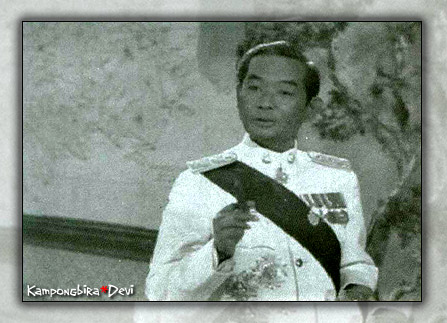 |
แฟนเราใช้ google ซึ่งมันเราเข้าที่ wiki แล้วเจอข้อความนี้
The Ugly American is the title of a 1958 political novel by Eugene Burdick and William Lederer. The novel became a bestseller, was influential at the time, and is still in print. The book is a quasi-roman à clef; that is, it presents, in a fictionalized guise, the experience of Americans in Southeast Asia (Vietnam) and allegedly portrays several real people who are represented by pseudonyms.
The novel, taking place in a fictional nation called Sarkhan (an imaginary country in Southeast Asia that somewhat resembles Burma or Thailand, but which is meant to allude to Vietnam) as its setting and includes several real people, most of whose names have been changed. The book describes the United States's losing struggle against Communismwhat was later to be called the battle for hearts and minds in Southeast Asia, because of innate arrogance and the failure to understand the local culture. The title is actually a double entendre, referring both to the physically unattractive hero, Homer Atkins, in contrast with the ugly behavior of the American government employees.
In the novel, a Burmese journalist says "For some reason, the [American] people I meet in my country are not the same as the ones I knew in the United States. A mysterious change seems to come over Americans when they go to a foreign land. They isolate themselves socially. They live pretentiously. They're loud and ostentatious."
The "ugly American" of the book title fundamentally refers to the plain-looking engineer Atkins, who lives with the local people, who comes to understand their needs, and who offers genuinely useful assistance with small-scale projects such as the development of a simple bicycle-powered water pump. It is argued in the book that the Communists are successful because they practice tactics similar to those of Atkins.
According to an article published in Newsweek in May 1959, the "real" "Ugly American" was identified as an International Cooperative Agency technician named Otto Hunerwadel, who, with his wife Helen, served in Burma from 1949 until his death in 1952. They lived in the villages and taught farming techniques and helped start home canning industries.[1]
Another of the book's heroes, Colonel Hillandale, appears to have been modeled on the real-life U.S. Air Force Lieutenant General Edward Lansdale, an expert in counter-guerrilla operations.
After the book was released the term "Ugly American" came to be used to refer to the "loud and ostentatious" type visitor in another country rather than the "plain looking folks, who are not afraid to 'get their hands dirty' like Homer Atkins" to which the book originally referred.
[edit]1963 film
The story of this novel was made into a film in 1963 starring Marlon Brando as Ambassador Harrison Carter MacWhite. Its screenplay was written by Stewart Stern, and the film was produced and directed by George Englund. The film was shot mainly in Hollywood, with Thailand serving as the inspiration for the background sceneries. Parts of the film were also shot on locations in Bangkok, Thailand, including at Chulalongkorn University, one of the leading institutes of higher learning of the country.
The late Kukrit Pramoj, a Thai politician and scholar, was hired as a cultural expert/advisor to the film and later played the role of Sarkhan's Prime Minister "Kwen Sai". Later on, in 1975, he really did become the 13th Prime Minister of Thailand. Probably because of this, the word "Sarkhan" has entered the Thai language as a nickname of Thailand itself, often with a slight self-depreciating or mocking tone.
แหล่งที่มา
http://en.wikipedia.org/wiki/The_Ugly_American
| จากคุณ |
:
fortuneteller   
|
| เขียนเมื่อ |
:
8 ส.ค. 54 03:18:16
|
|
|
|
 |





